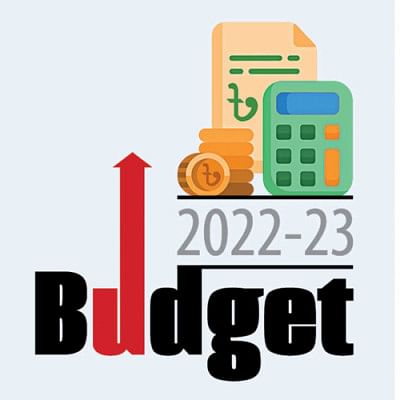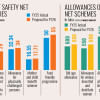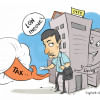Budget 2022-23: Better targeted social safety net

The government is committed to using the long-overdue National Household Database (NHD) from the next fiscal year to better target the social safety net programmes, in a development that can infuse dynamism in the flat scheme.
"We will seek to mandate the use of the National Household Database to identify beneficiaries of major social protection programs," Finance Minister AHM Mustafa Kamal said in his letter to the World Bank on March 2 seeking $250 million budget support for fiscal 2022-23.
The use is subject to the readiness of the necessary information technology infrastructure, he said, adding that the NHD infrastructure will be used to scale social assistance during any future extreme climate events.

The NHD, which is expected to serve as a poverty registry, is expected to be ready next month, according to Tofail Ahmed, its project director.
The database, which is based on a form of 37 questions answered by 3.5 crore families from 64 districts in three phases in 2017 and 2018, will provide a more accurate picture of the socioeconomic status of households in Bangladesh.
It was originally supposed to be complete in 2017 but was later expected by June last year.
The Armenian firm that is developing the Management Information System -- through which the various government departments can better target beneficiaries for their programmes -- had to put the work on hold for the global public health crisis, Ahmed said.
Work has resumed and the database has been forwarded to the Department of Disaster Management for vetting.
"By June, the database would be ready -- it will be useable."
He acknowledged the dated nature of the data in light of the pandemic, which is said to have thrown many into poverty.
"That is a challenge, but we will update it in future," Ahmed added.
Mustafizur Rahman, a distinguished fellow at the Centre for Policy Dialogue, advised merging the NHD with the dataset collected by the local governments amid the pandemic.
"In that way, the newly eligible beneficiaries can be covered. The NHD is progress nonetheless for social safety net programmes," he said.
Also from next fiscal year, all the elderly and the disabled people as well as the widows, deserted and destitute women in another 100 upazilas would be brought under the coverage of the safety net schemes.
With this, 362 of the 495 upazilas would get full coverage of the social safety net schemes.
As a result, the government's allocation for social safety net schemes would increase by about 23 percent in the upcoming budget from this year's Tk 107,614 crore. Yet, it would hover in the neighbourhood of 3.1 percent of GDP.
Rahman said the allowance of Tk 500 should be raised in light of the spiralling costs of living.
In April, inflation hit an 18-month high of 6.29 percent.
"The amount is simply not enough given that the beneficiaries' purchasing capacity has shrunk," he said, while calling for price stabilisation of essential commodities by way of lower import duty and favourable exchange rate.
The open-market sales can be expanded and the trucks may be located more strategically, Rahman added.
"Inflation is a livelihood crisis for the poor and the low-income people and an annoyance for the middle-income people," said Zahid Hussain, a former lead economist of the World Bank's Dhaka office.
Last year, their income shrivelled; this year, they are working but their purchasing power has shrunk.
For them, the family card would not be too helpful as those are prone to irregularities.
"Cash transfer would be most effective and bring them a little relief. The platform is already there and there would be lots of savings as trucks would not need to be hired and the items packed," he added.
Kamal, in his letter to the WB, indicated that the government would be deploying direct cash transfers through mobile financial services more and more.
"The shift towards mobile money for last mile payments also significantly improves accessibility in withdrawing program entitlements and the possibility of benefiting from other value-added services," he added.
The system is ready for all transfers under the social safety net schemes to be made through direct cash transfer, said M Shamsul Alam, the state minister for planning.
About the measly allowance, he said: "Those under the social safety net do not get by on just Tk 500. They also get 30 kg rice at Tk 10 and other commodities at heavily subsidised rates -- about one crore people would also be getting this handout."
The latest edition of the Household Income and Expenditure Survey would be ready by December, he said. Together with the information provided by the NHD, the government would take up more programmes.
"Nonetheless it is a good initiative," said Selim Raihan, a professor at the University of Dhaka's economics department.

 For all latest news, follow The Daily Star's Google News channel.
For all latest news, follow The Daily Star's Google News channel. 








Comments